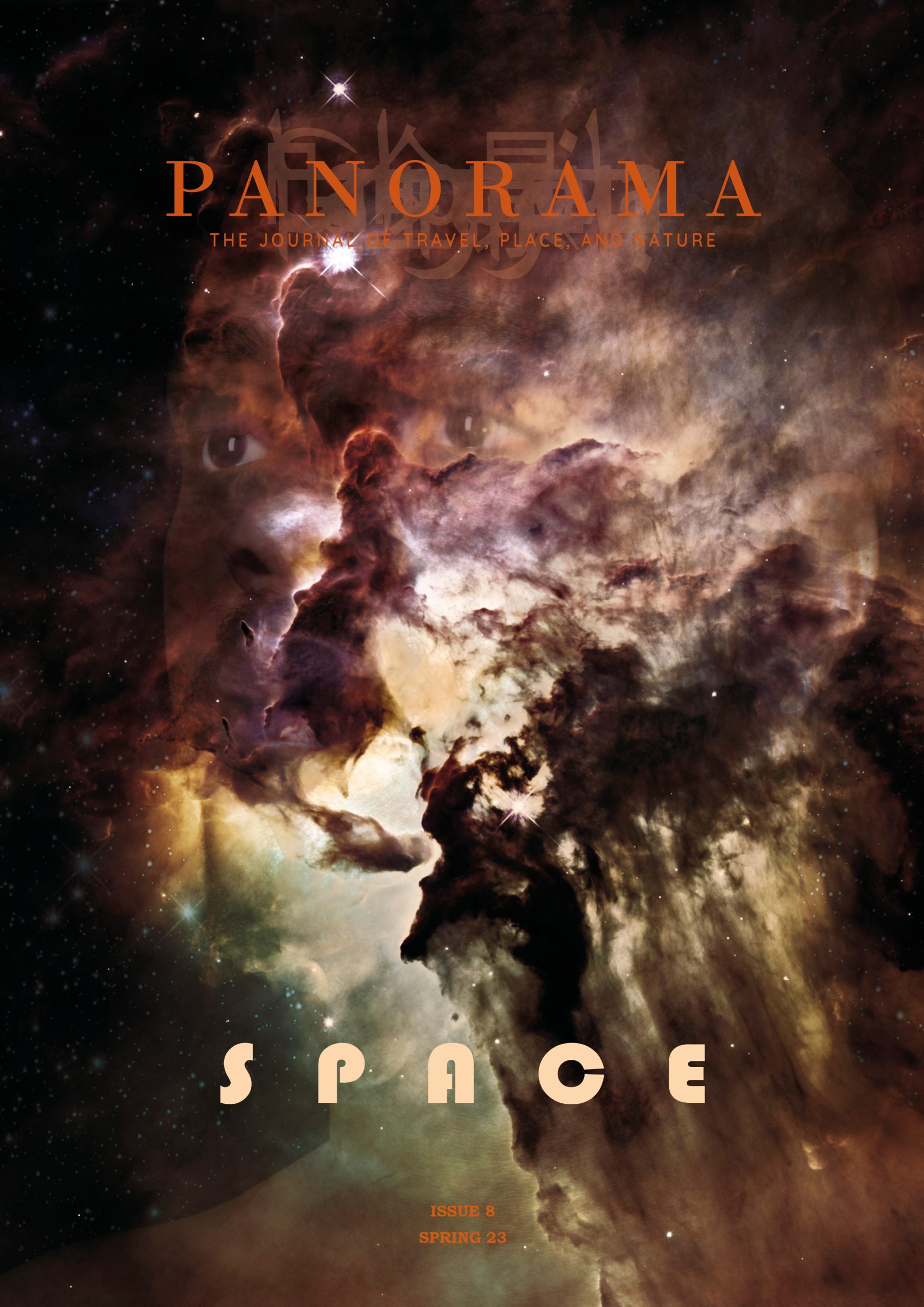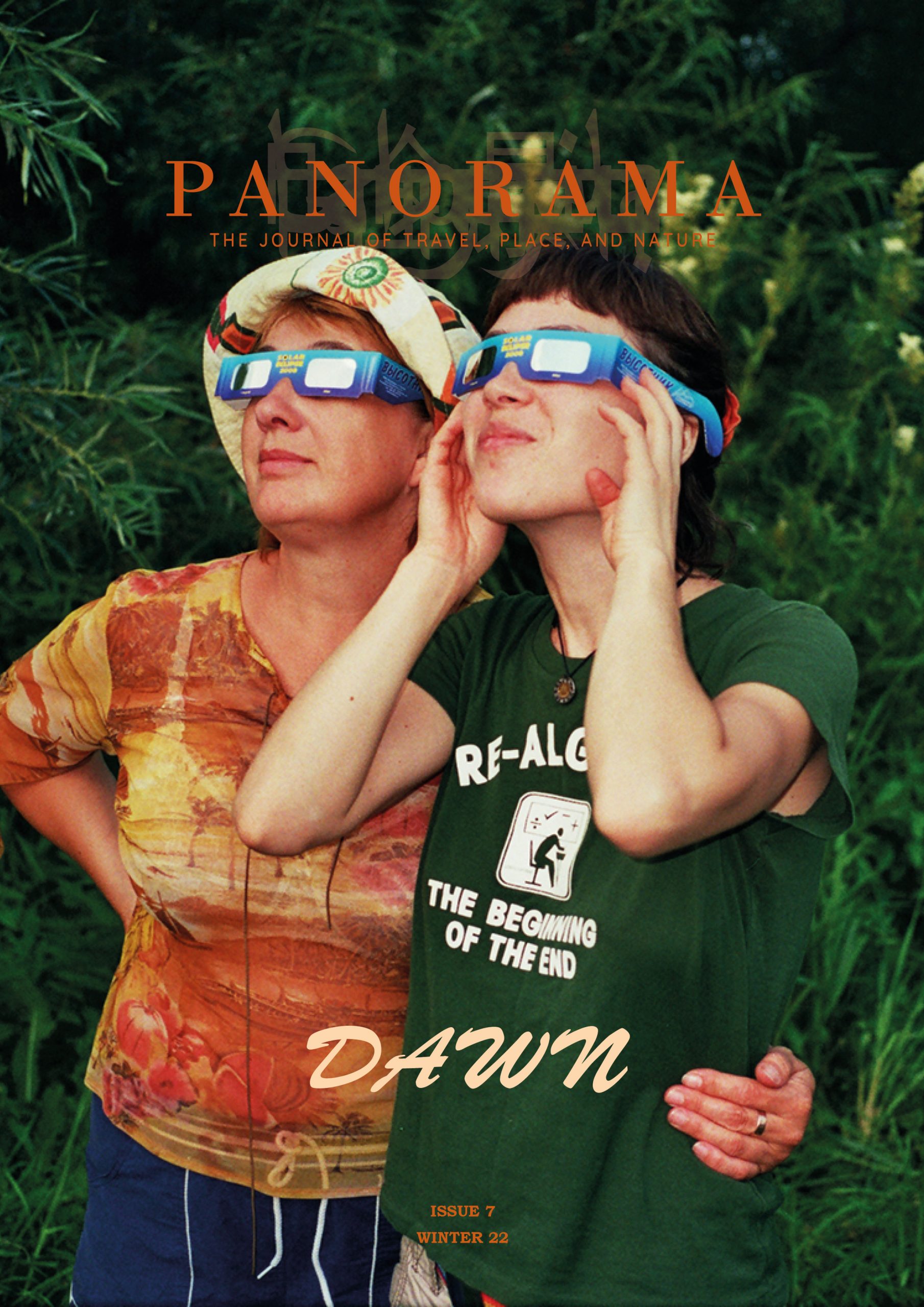I stopped at the Ömeriye hamam on my walk back from Nicosia’s northern, Turkish side. The Ottomans built the bathhouse, but today it stands on the Greek Cypriot side of the last divided capital in Europe. A tasteful wooden sign at the door announced “Couple’s Day.” Pointing at it, I said to the sharply dressed woman outside, “Oh, I guess I cannot come today,” but she insisted it was suitable for me to come alone. But since it was a mixed-gender day, she advised me to return with a swimsuit.
When the Ottomans conquered Cyprus in 1571, they built the Ömeriye hamam as one of their first acts as the new rulers. The next-door mosque of the same name followed shortly. The Ömeriye building complex was just five minutes from my ceramics studio Airbnb, founded by Tanya, a young Greek Cypriot woman who had grown tired of politics, left her career in journalism and now makes pottery with slogans like “make mugs, not war.”
I first saw the young man as he pushed aside the white linen curtain, appearing from one of the cubicles overlooking the marble fountain in the middle. Chuckling to myself about another solo bather on a couple’s day, I didn’t think much more of it. I wanted to dive into the heat of the hamam. Wherever I travel I search for the equivalent of saunas: decades living abroad hasn’t reduced this most Finnish of my habits.
When I saw the stranger up close in the unisex bathroom, his good looks startled me: tall with broad shoulders, a masculine face. He reminded me of that actor in The English Patient, whose name I couldn’t remember. In the Italian countryside, Juliette Binoche has an affair with the Indian Sikh character he plays. Holding a torch, he swings up to the ceiling on a rope to brighten the abandoned chapel’s beautiful frescoes so that Juliette’s character can see them.
I didn’t spend much time wondering where he might be from — India? Sri Lanka? UK or US with Pakistani background? — but he was clearly a tourist like me willing to pay the high EU price for bathing in Ottoman style.
This morning I stood in line at the pedestrian border crossing waiting to cross to Turkish Nicosia, or the occupied side as I quickly learned to correct myself in front of the Greek Cypriots. The other tourists and I first showed our passports to the Greek Cypriot officials, walked a few steps and then handed them with covid vaccination cards to the Turks. I learned that the Greek and Turkish Cypriots rarely choose to cross the UN buffer zone border, separating the two communities with barbed wire and oil barrels. The border also marks the line between Islam and Christianity and Turkish Lira and Euro. The formalities seemed easygoing for a border that until 2003 had been closed for almost thirty years.
I didn’t need the red flags with white crescents and stars to tell me that I was in Turkish territory. I could tell from the Efes — a Turkish beer — signs and from the familiar smells: shisha and the smell of kebabs anyone who has spent time in Turkey will recognize. My mind wandered all the way to my Turkish lover from years ago and how I used to love to listen to him speak Turkish with his friends. After spending the day in Turkish territory, crossing back to European Nicosia felt like coming back to a place less captivating for being too familiar.
When I entered the hamam’s main bathing room, he was lying on the large, heated platform under the high dome. His brown skin glowed against the white marble, with only a towel covering his crotch. As if sleepwalking, I moved towards the platform hoping to lie next to him but the petite woman with a perfectly shaped black bob escorted me to a private booth. “Perhaps you will feel more comfortable here,” she asked quietly, though it wasn’t really a question.
She gave me a natural sponge and a bar of soap, the kind you can find in expensive stores in most European cities, and pointed at the tap above the marble wash bin, “for showering.” Only a cotton curtain separated my small booth from the main room. I was happy it didn’t quite close all the way so I could steal glimpses of the stranger.
And I did every time I got up to rinse. I was told to wear my swimsuit but — full well knowing that if I saw him, he also saw me — I stripped it to my waist and sitting on my marble bed let the warm water flow over my bare breasts. Lying down, I imagined him walking over to me and without speaking touching my arm. I imagined making room for him on the marble bed and us embracing. I imagined him entering me.
The gathering moisture in the ceiling dripped on my face. At the same time, the prayer call started from the next-door mosque. It was the only still functioning mosque left on the Greek side. I stared at the round and star-shaped air shafts in the ceiling, co-existing in perfect symmetry, letting in the cool air. I tried to imagine the many bodies that had felt the marble’s heat throughout the centuries. The different shapes, memories and longings, all the sensual fantasies passing through the bathers’ minds.
When the British took over Cyprus after more than three hundred years of Ottoman rule, they first advertised their new colony as part of the “exotic Orient.” Later they changed their mind and campaigned to convince their countrymen that Cyprus is in fact part of Europe. As Edward Said theorizes in his 1978 book Orientalism, Europeans have for centuries imagined the other side of that border between Europe and the Muslim East as lesser: less advanced, less rational, less civilized. But we have also fantasized the other side to be more sensual. Was I doing the same? Was I exoticizing the Turkish side? And the brown-skinned stranger? Assuming his role was to fulfil my fantasies?
Stupidly, I didn’t bring water with me and the dehydration was starting to make me dizzy. I pulled the strips of my swimsuit back on and on a whim decided to approach the stranger on my way out. He was lying on his back with his eyes closed, clearly enjoying the heated marble’s relaxing effect. Something made me think it was acceptable for me to interrupt him and, as if I knew him, I blurted, “it’s so hard to tell how long it’s been.”
“What?” he said and perked his head up a bit. He looked even more desirable up close, his long hair wet, framing his striking features. I repeated what I had said and thought I saw a faint smile on his lips, as if he had been waiting for me to come to him.
But I couldn’t hear what he answered. Or I assumed that what I thought I heard couldn’t be true. His words bounced from the marble walls to the high ceiling and my dizziness didn’t help. I asked him to repeat but again heard him say something like “we could stay a little longer” or was it “you could stay a little longer.” Did he even extend his arm towards me? No, that can’t be but something made me think he did.
Blood rushed to my cheeks and my heart beat faster. Had he been sensing my desire all along? I felt too embarrassed to ask him to repeat his words once more so I just left him lying there with his question or suggestion, worried I might have been rude.
Showering, I tried to grasp what had just happened. As I stepped out, he approached the unisex shower booths with a serious face. My heart beat faster again and because I couldn’t think of anything to say, I just smiled. He responded with an awkward, quick move of the corners of his mouth. Was it sadness or merely indifference? I assumed that we would talk to each other in the dressing room, sipping tea around the fountain. Perhaps go have dinner together.
But it never happened. Instead, eyes averted to the floor, the beautiful stranger chugged down his tea, and I watched his back as he paid and exited into the dark night. I was left drinking my tea alone, wondering whether he had ever smiled at me at all.
Disoriented from the heat and the symmetry of the dressing room, I drew back the curtain to my cubicle: It was completely empty. No bag, no clothes. Still dizzy, I spun around, eyes searching frantically for the attendant. “Did someone move my clothes?” I blurted.
She smiled gently and beckoned me across the room to the cubicle diametric opposite. “No,” she said, parting the curtain to reveal an identical-looking cubicle with all my belongings stacked and folded neatly, just as I had left them. “It’s just an illusion.”










